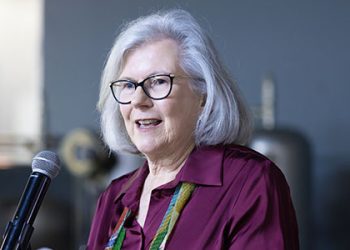The Minister of Higher Education, Science and Innovation, Dr Blade Nzimande, in response to a Parliamentary question said that the two main technologies that will drive the move from internal combustion engines to electric transport are fuel cell electric vehicles and battery electric vehicles. Fuel cell electric vehicles use hydrogen gas as a fuel while the battery is the source of power in battery electric vehicles.
The Minister said while the two technologies are sometimes portrayed as competing, in reality they are complementary. Fuel cell electric vehicles are likely to dominate in the heavy-duty sector to replace long distance trucks and buses, while battery electric vehicles appear to be dominating in the passenger vehicle segment, where driving distances are shorter.
“With regards to fuel cell electric vehicles, the DSI has been developing skills at Doctoral and Masters Level to support the creation of new knowledge and capabilities to support local manufacturing through the implementation of the Cabinet approved Hydrogen South Africa (HySA) Strategy,” said Minister Nzimande.
The Minister said as of 31st March 2021, the HySA Programme has graduated 175 Masters and Doctoral students, of which 31% are female. The students have been trained in various aspects along the fuel cell value chain, including the mobility sector, where fuel cell vehicles in the form of forklifts, golf carts and scooters have been demonstrated.
“In order to support the achievement of the high-level outcomes of the Hydrogen Society Roadmap, which include decarbonisation of transport through the introduction of hydrogen fuel cell electric vehicles and battery electric vehicles, the DSI has initiated the training of artisans to support the local manufacturing of electric transport in South Africa,” emphasized the Minister.
During the 2020/21 financial year, the DSI collaborated with the Energy and Water Sector Education and Training Authority (EWSETA), Bambili Energy and the University of Pretoria to train 25 unemployed Technical, Vocational Education and Training (TVET) graduates in the installation, maintenance and operation of fuel cell systems. The knowledge gained in the handling of hydrogen and fuel cell systems also feeds into the electric mobility sector.
In support of battery electric vehicles, the DSI, through the Technology Innovation Agency, introduced the Uyilo Mobility Programme at Nelson Mandela University in 2013. The programme leveraged on the expertise developed from the Joule electric vehicle to initiate training in battery testing and integration into vehicles, in partnership with the private sector.
“As of 31 March 2021, 38 students have been trained through the programme, 15 of them female. Out of the 38 trainees, 27 are currently employed while some are engaged in further studies. Only 2 trainees are known to be unemployed. The partnership with the private sector has ensured that the skills are relevant to support local manufacturing of the vehicles. In addition, during the 2021/22 financial year, the DSI, in partnership with academic institutions and the private sector, introduced a 12-month internship programme aimed at training unemployed TVET and University of Technology graduates in the development of battery materials and local production of batteries. The first cohort of 11 graduates have been recruited and will be placed at the pilot facilities located at the Nelson Mandela University in Qqeberha and the University of the Western Cape in Cape Town,” confirmed the Minister.
The Department of Science and Innovation, (DSI) will be working with the Department of Higher Education and Training (DHET) in ensuring that the skills strategy of the country is aligned with the Electric vehicle strategy of the Department of Transport and the Department of Trade, Industry and Competition.







